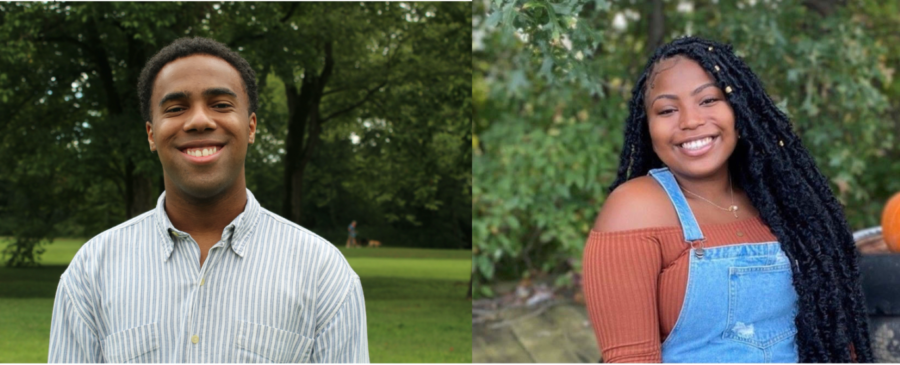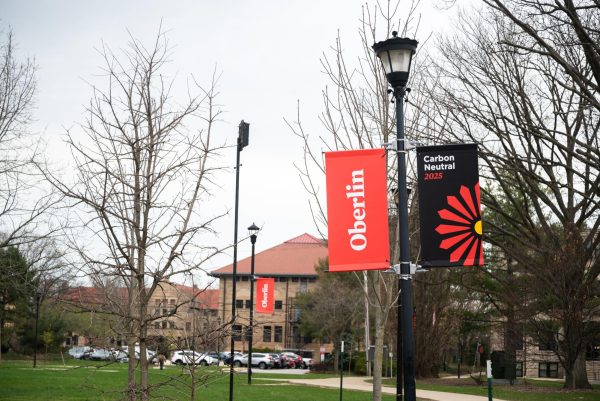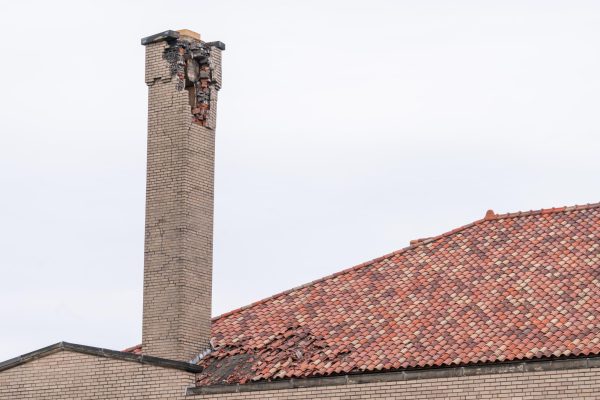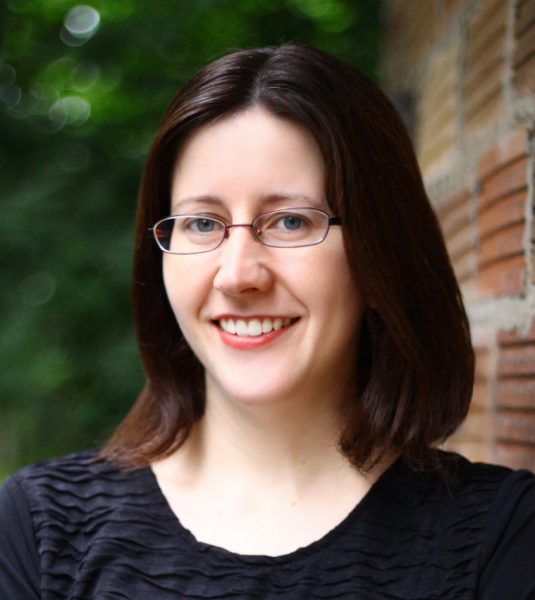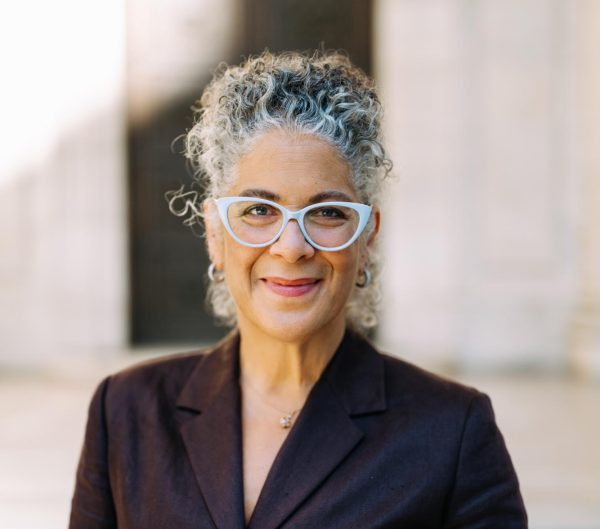Off The Cuff with Henry Hicks and Jasmine Mitchell, Senate Chairs
College fourth-year Henry Hicks has served as chair of Student Senate since spring 2020. College fourth-year Jasmine Mitchell has been on Senate since fall 2020 and currently serves as the vice chair. During their time on Senate, Hicks and Mitchell have overseen major projects adapting to the COVID-19 pandemic and addressing racial injustice. Some of their major accomplishments include their ObieReal campaign to give students realistic pandemic safety guidelines and their work to engage administrators and trustees on racial justice issues.
How do you define Senate’s mandate for this semester, and how do individual senators and their work contribute to Senate’s larger goals?
Jasmine Mitchell: I think because this past summer in 2020 led to this heightened racial consciousness and push for racial justice and inclusivity, it forced Senate, even before the elections, to be more intentional about the work that it was doing. I think personally, before I got on Senate, it was not really a body that I was very engaged with. Now those student voices that have done the work — that have been in the meetings, that have been pushing for all of the issues that a lot of students care about — are in positions to be able to really have that face time with administrators. I think now it allows Senate to have a little bit more teeth because the people that are in front of administrators in these meetings are the ones who are affected by the issues. So I think … the charge and also the execution … has not necessarily been re-envisioned, but has been revitalized by starting with the Blackout Senate push that happened in the fall, which elected me among other Black senators.
Henry Hicks: The work that Senate has been doing has been in response to fighting the pandemic. When it comes to individual senators doing work and contributing to our broader mission, one thing that we’ve been really focused on this semester is better coordinating our work, thinking a lot about effective communication within Student Senate and how we can strategize to approach issues from different perspectives and from different approaches. We have our racial equity liaison, Darielle Kennedy, who’s been putting on really incredible programming as a way to create space for processing but at the same time as a way to interrogate existing College policies. Jasmine and I both are student representatives on the Presidential Initiative [on Racial Equity and Diversity], and so we’re doing our work on that end as well — looking at the long-term reforms that we can make at the institution to prioritize justice and equity.
Could you talk about what your working relationship with administrators is like, and how your working relationship has changed during your time on Senate?
JM: This past semester, I was struck by just the amount of face time that Student Senate gets with administrators. But quite frankly, [I’ve been] a little frustrated because of the fact that I had tried to have meetings with all of these administrators before I was a senator, and they just weren’t responsive. It was frustrating how just being a senator could give you access to administrators to have conversations with them about the issues.
I think while it’s allowed me to be able to bring those issues to administrators’ attention more readily and easily and in a more timely way, quite frankly, it doesn’t necessarily solve them. I think one thing that I’m learning is really how to work in a bureaucracy, and how the administration runs; when we’re coming to administrators about a project idea that we’ve spent so much time on and they say, “no,” we’re mad — we give it a lot of energy and time and passion and all we have. But really, it’s also caused us then to think about how we could have avoided getting into this situation. If we had just met with this particular administrator more regularly beforehand, perhaps we would have known about what the “no” to this ask was earlier and then been able to have a backup plan.
HH: One thing that was a quick wake-up call for me was that just because there’s that access doesn’t necessarily mean that these projects are then going to be all that much easier to achieve. We’re fighting for oftentimes drastic change within an institution [whose] mission is academia. So the change isn’t easy, I think, especially within the context of One Oberlin and thinking about the financial sustainability of the College and the Conservatory. But I think that we are committed to doing this work.
How has having this access and this collaborative space translated into actual change?
HH: In the fall, we really started having conversations about what are the College policies going to be about COVID. I think a lot of the credit for this also has to go to [College fourth-year] Ilana Foggle, who was on Senate last academic year and is currently a student representative on the Educational Plans and Policy Committee. The idea for ObieReal came out of a conversation that I had with Ilana and with [Vice President and Dean of Students Meredith Raimondo]. A really great example of this is pods: the College says no pods, period. So we very quickly recognized we needed to put out guidance because we know that students are going to form pods. We know that students are not going to wear their mask around every single person that they run into on campus. But if we don’t have guidance, if we don’t have suggestions for how students can do that safely, … you’re going to have pods that are overlapping with one another.
So we were in communication with the administration. They knew that we’re putting out this type of guidance. It does not mean that they are endorsing it. They put out their own guidance. But that is a project that we’re working on and that did involve quite a bit of collaboration between students and administrators.
JM: Student Senate over the summer started with ObieReal. Frankly, there was pushback, but at the same time, there had to be a recognition of the fact that we’re in a pandemic, and students are going to make decisions that are not in line with ObieSafe policies. … One example is with the policy about contact tracing. Last semester, during a meeting Henry and I had with Meredith Raimondo, we were saying students aren’t telling the contact tracers that they’ve been exposed or that they’ve been around people unmasked because they don’t want to get their friends in trouble. They might tell them individually, but in terms of the efficacy of contact tracing, it’s not going to be as robust because students are more concerned about the kind of punitive nature of contact tracing instead of [its] positives … in terms of campus health and safety during a pandemic. Since then, ObieSafe has released more clear guidelines about what happens when you get called by a contactor, saying what would be reported in terms of misconduct and what would have actual punitive actions.
In light of recent events and in the context of Senate’s ongoing work with regard to racial equity and antiracism, what are your thoughts on the College’s efforts to tackle issues of racial equity on campus?
HH: I think that there’s always more work to do especially when it comes to centering and uplifting the perspectives of Black students. When it comes to recognizing the work that Black students in the College and in the Conservatory are currently doing and have been doing to fight for racial justice and compensating those students for that work, I think that there is so much more that we can be doing. I know that Jasmine and I are both incredibly excited about the work that we’re doing on the Presidential Initiative. … I am really looking forward to seeing the outcomes [of that].
I’m on the curriculum subcommittee, which is examining racial disparities in curriculum, and also looking at ways in which we can drastically revise the way that we think about curriculum and race at Oberlin. We’ve had a lot of really cool and encouraging conversations with folks across campus, but I think that we have an obligation to be doing more. If we’re going to claim this history of championing progressive causes, then I think that we can’t be content in leaning on that history. I think that we also have to recognize that we’re in a historic moment right now and that history is ongoing.
JM: I would just add that, I think on the surface level, by virtue of Henry and [my] position, we have the privilege of being optimistic because of the fact that we are in the room for a lot of meetings that are happening that point to progress. At the same time, I don’t think many students have that same opportunity. I think that’s where there’s a disconnect between students’ perception of how the school is doing in terms of racial equity to date. Students are just aware that a Presidential Initiative has been created. What it has done, what it’s doing, what it has planned has not been communicated at all. Henry and I know that all of those things are going on, and we’re trying to do our best to be a connected piece, but we are only two people. Nobody knows that all of these things are in the works.
I think the greatest detriment to Oberlin is its lack of communication with students about more than the lip service so far that they’ve paid to the Presidential Initiative. I think it’s fair for students to feel that it’s only been lip service because they haven’t heard anything else. That’s something that we are trying to deal with and trying to get communications out about.


